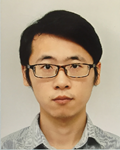中法核工程与技术学院第87期学术午餐会
Study on Saturated Flow Boiling CHF using Porous Honeycomb Plate and Irradiation Effect
中法核工程与技术学院第87期学术午餐会
87th Academic Lunch Seminar of Sino-French Institute of Nuclear Engineering and Technology
Topic: Study on Saturated Flow Boiling CHF using Porous Honeycomb Plate and Irradiation Effect
Speaker: Dr. WANG Laishun
Time: 12:40 – 14:00, Friday September 21, 2018
Venue: F309 in the teaching building, Zhuhai Campus, SYSU
Organizer: Sino-French Institute of Nuclear Engineering and Technology, Sun Yat-sen University
Language: English

Abstract:
In-vessel retention (IVR) of molten corium through external cooling the reactor vessel is one of the key severe accidents management strategies. During the cooling process, the heat removal is limited by the occurrence of critical heat flux (CHF) at the outer surface of the reactor vessel. The critical heat flux should be increased to give enough safety margin as the nuclear plant power increase. The first objective of this study is to investigate the CHF enhancement effect of a metal porous honeycomb plate in downward-facing saturated flow boiling conditions. Honeycomb plates with different parameters were used to find the enhancement effect under different water flow rates conditions, investigate the enhancement mechanism and then find out a honeycomb parameter which can obtain a maximum enhancement effect for downward-facing flow boiling conditions. The second objective is to investigate the irradiation effect on flow boiling CHF of bare surface and honeycomb plate surface to investigate if there is an enhancement effect due to Radiation Induced Surface Activity (RISA) effect. However, flow boiling CHF values decrease after the boiling surface being irradiated by electron beam, especially at low dose conditions which generate many more nucleation sites on the surface. It is found that an inverse relationship between CHF and nucleation site density exists in flow boiling.
About the speaker:
Dr. WANG Laishun, postdoctoral research associate of IFCEN, received his Ph.D. degree in Department of Nuclear Engineering and Management, University of Tokyo in September 2017. He joined IFCEN in this April after working at the University of Tokyo for half a year. His main research interests include nuclear reactor thermal-hydraulics, nuclear safety, and severe accidents.















 中法核工程与技术学院
中法核工程与技术学院 中法核工程与技术学院
中法核工程与技术学院